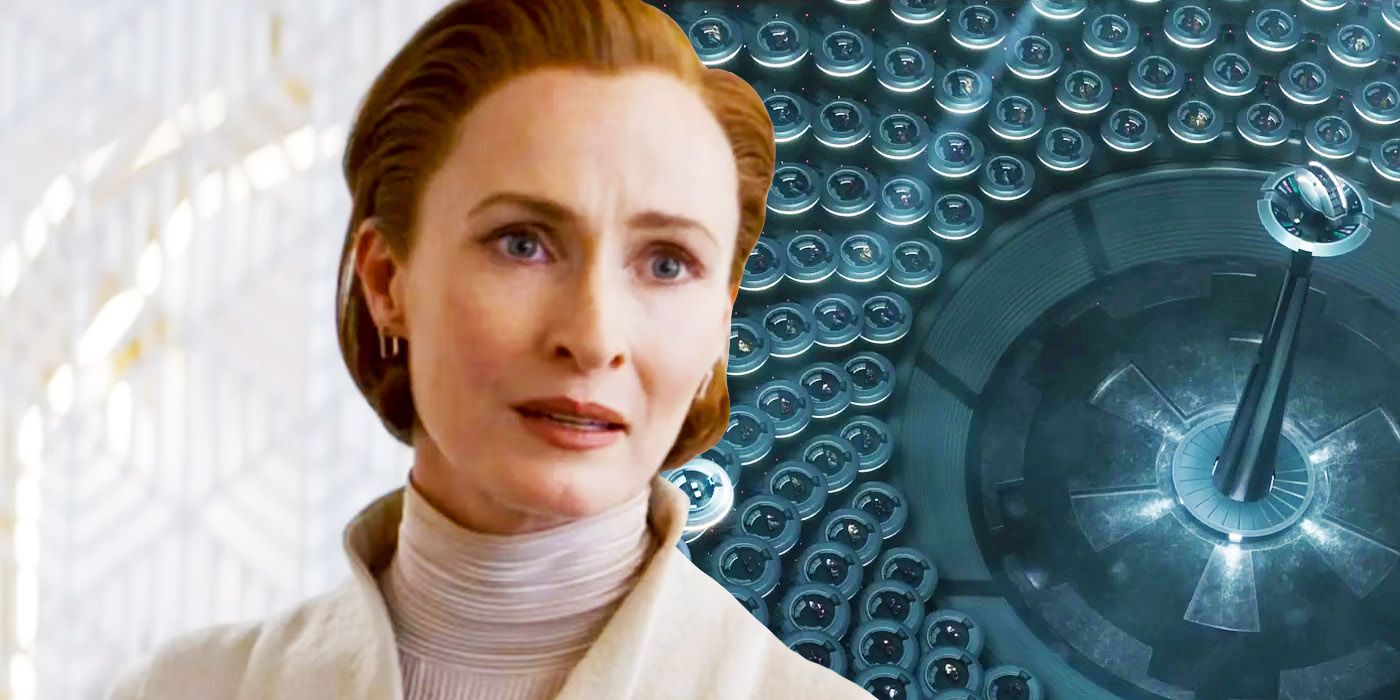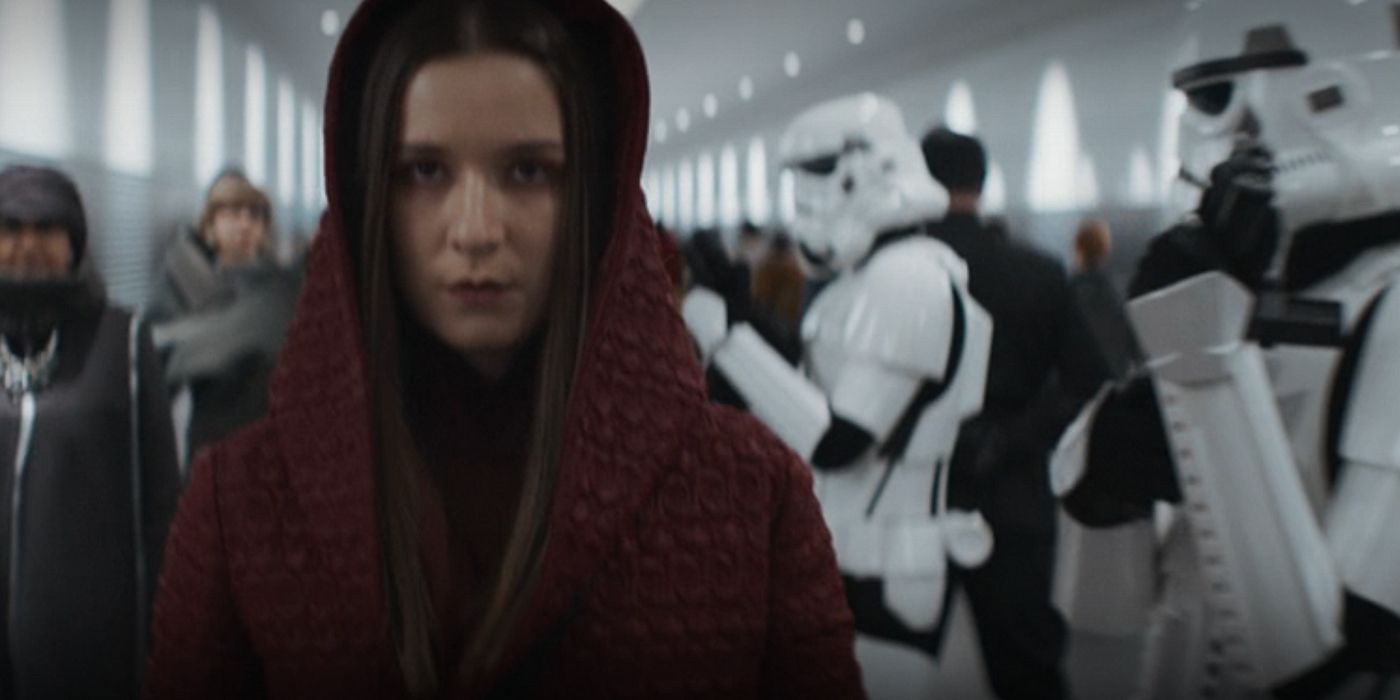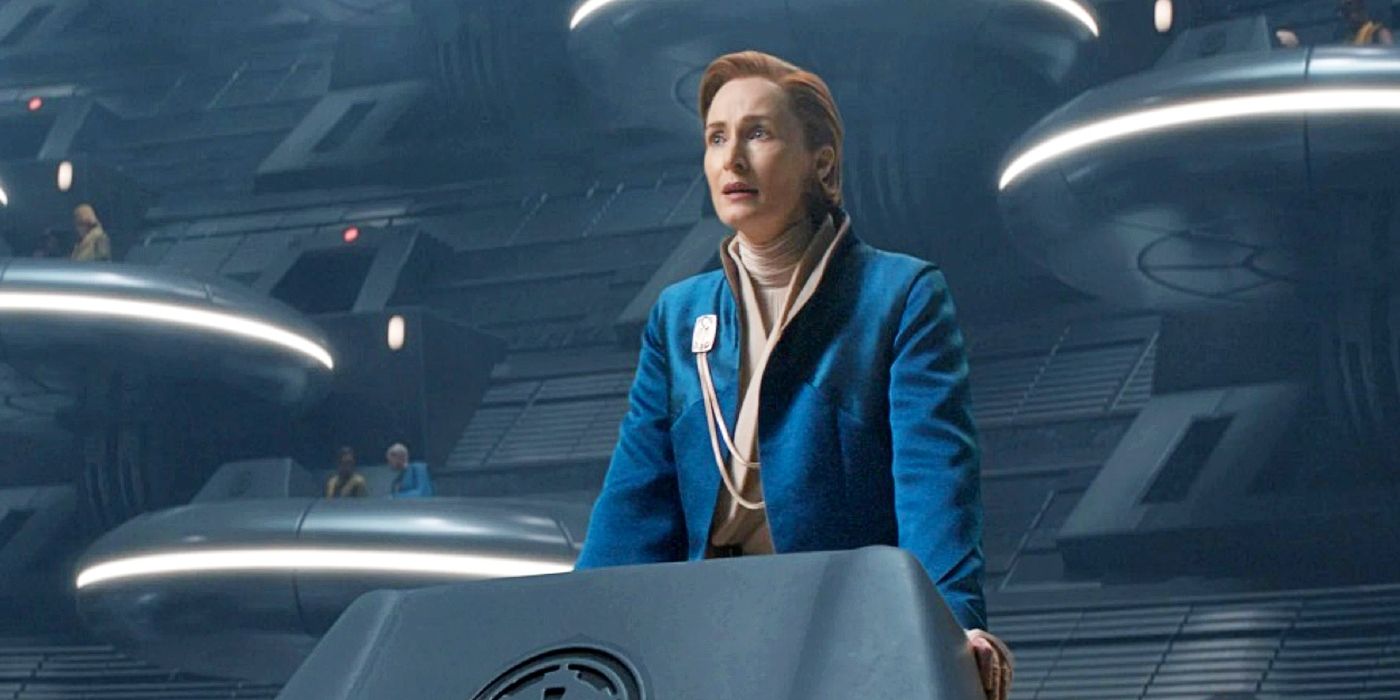This article contains spoilers for Andor.Andor has learned from the mistakes made in George Lucas' Star Wars prequel trilogy concerning their depiction of politics. Star Wars has been political, as all art is, from the beginning; it's no secret that the Viet Cong inspired the Rebel Alliance and that George Lucas based the Empire on America. The prequel trilogy, especially, wore their politics on their sleeve with much of those movies' runtime dedicated to the political intrigue in the Senate and Palpatine's rise to power as Chancellor, and eventually Emperor. The Phantom Menace even opens with a title crawl concerning the disputed taxation of trade routes and a blockade on shipping to the planet Naboo. Senator Amidala's response to Palpatine's announcement of the First Galactic Empire in Revenge of the Sith, "so this is how liberty dies ... to thunderous applause", was even explicitly stated by George Lucas as commentary on the support for then-President George W. Bush's wars in Afghanistan and Iraq.
Andor, similarly, explores the machinations of politicians, through the lens of Senator Mon Mothma (Genevieve O'Reilly). Andor continues the prequel trilogy's exploration of politics but avoids many of its pitfalls: the stilted dialogue and awkward performances that threaten to ruin the more interesting political themes that George Lucas imbued the Star Wars prequels with. Andor achieves what George Lucas' prequel trilogy set out to do by effectively tying the politics to interesting, multidimensional characters and a more high-stakes story, which actually makes viewers care about the politics in the Star Wars galaxy, as well as their real-world parallels.
The Shadow Of The Empire Makes Andor's Politics More Oppressive
Andor takes place in 5 BBY, 14 years into the reign of the Galactic Empire (roughly 5 years before the events of Rogue One and A New Hope), and, as such, depicts the Empire as holding a tight grip of control over the Galaxy. Any spark of resistance is met with a show of overwhelming force from the Empire. As a result of the payroll heist on Aldhani in Andor episode 6, "The Eye", the Empire increases taxation on sectors harboring "partisan activity", crackdowns on sentencing, and introduces a law in an emergency session of the Senate that practically allows the Imperial Security Bureau (ISB) to do whatever they want in the interest of imperial security.
What makes these political discussions more engaging than those in the Star Wars prequel trilogy is that they are shown to have immediate consequences that directly affect the characters in the show. At the end of Andor episode 7, "Announcement", Cassian Andor (Diego Luna) is arrested on false charges by a shoretrooper and is given the maximum prison sentence by the judge in what amounts to little more than a hastily-constructed kangaroo court. This not only makes the political discussions in Andor more captivating than the prequel trilogy but also displays the sheer oppressive power that the Empire holds over the Galaxy.
Mon Mothma Is The Perfect Hook For Andor's Political Subplots
Another way in which the politics in Andor is more engaging than in the Star Wars prequel trilogy is that the Senate subplot is anchored by a single, fascinating character: Mon Mothma. One of the largest flaws in the prequel trilogy is that the gratuitously unfunny Jar Jar Binks has a role as one of the most important political players in the Senate. His presence undercuts much of the drama and sense of importance those scenes are supposed to have. Andor, by contrast, makes the political intrigue of the Senate interesting by attaching one of the show's most interesting characters to it.
What makes Mon Mothma so engrossing is her intelligence. She is a two-faced character, as she explains to her old friend and potential political ally, banker Tay Kolma (Ben Miles), she has a public image as a "polite, sometimes-indecisive" Senator while, behind the scenes, she helps to fund the Rebel Alliance. She also disagrees with fellow rebel Luthen Rael's (Stellan Skarsgard) methods on Aldhani. These disagreements among the Rebel Alliance and more interesting, consequential political discussions make Andor's depiction of politics much more interesting than the Star Wars prequel trilogy's.



